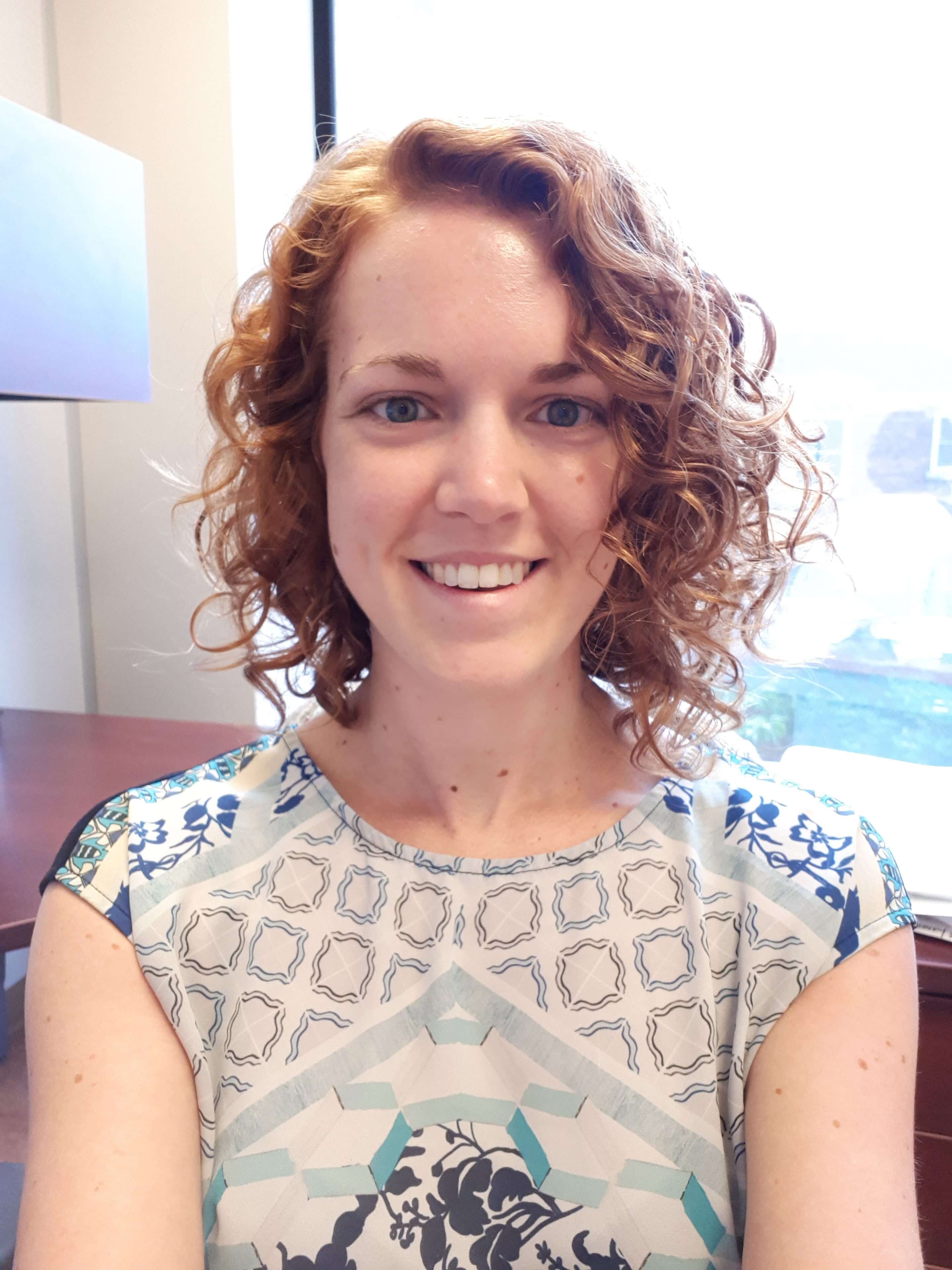Paralegal
Begin your path to a career as a paralegal.
- Has achieved accreditation from the Law Society of Ontario (LSO)
- Prepares you to apply to the Law Society of Ontario (LSO) to become a licensed paralegal
- Gain practical advocacy experience via court visits, participating in mock trials, and other hands-on activities
Program Availability and Schedule
Availability
Open
Closed
Waitlisted
Start Term
Availability
International
Availability
Competitive?
Fall 2024
No
Winter 2025
No
Schedule
Program Summary
Credential
Program Delivery
Program Code
Area of Interest
School
Campus
Work Integrated Learning
The Paralegal Ontario College Graduate Certificate program prepares you to apply to the Law Society of Ontario (LSO) to become a licensed paralegal. This program is offered in three consecutive semesters followed by a mandatory 120-hour field placement.
This program is accredited by the LSO. It prepares you for a career in which you provide legal services to the public in specified areas of practice. Learn in a hands-on environment, acquiring practical skills from experienced and dedicated faculty....(read more)
Overview
Begin your path to a career as a paralegal.
The Paralegal Ontario College Graduate Certificate program prepares you to apply to the Law Society of Ontario (LSO) to become a licensed paralegal. This program is offered in three consecutive semesters followed by a mandatory 120-hour field placement.
This program is accredited by the LSO. It prepares you for a career in which you provide legal services to the public in specified areas of practice. Learn in a hands-on environment, acquiring practical skills from experienced and dedicated faculty.
Study areas of law that are relevant to the type of work a licensed paralegal can perform, as governed by the LSO. You learn about case management and trial preparation in areas such as:
- small claims court proceedings
- provincial offences and summary conviction matters
- proceedings before administrative tribunals
Complete hands-on activities, including participating in mock trials. Learn about ethics, professional responsibility and the requirements of running a legal services firm.
Benefit from completing a field placement lasting 120 hours. This gives you the opportunity to practise your skills and apply your knowledge to a real or simulated work environment.
For more information about becoming a licensed paralegal, visit https://lso.ca/becoming-licensed/paralegal-licensing-process.
Once licensed, you may find employment in:
- private and public sector law departments
- paralegal or law firms
- government agencies
- community legal clinics
- administrative tribunals
Or you may become a self-employed legal services provider.
SUCCESS FACTORS
This program is well-suited for students who:
- Have excellent oral and written communication skills.
- Are highly analytical and attentive to detail.
- Exhibit integrity and have a high standard of ethics.
- Are flexible, organized, effective at time management and able to prioritize tasks.
- Possess an entrepreneurial attitude.
Courses
Programs at Algonquin College are delivered using a variety of instruction modes. Courses may be offered in the classroom or lab, entirely online, or in a hybrid mode which combines classroom sessions with virtual learning activities. Upon registration, each full-time student is provided an Algonquin email account which is used to communicate important information about program or course events.
Code:
LAW1101
Course Name:
Fundamentals of Law and Legal Relationships
Course Description:
An appreciation of the history and development of legal principles and relationships is essential to becoming an effective legal practitione... + Read More
Hours:
42.0
Code:
LAW1102
Course Name:
Legal Drafting and Communications
Course Description:
Clear written communication is essential to correctly convey information to clients and others in the provision of legal services. Students ... + Read More
Hours:
28.0
Code:
LAW1104
Course Name:
Legal Research and Writing
Course Description:
Effective preparation for court and tribunal appearances, as well as providing advice to clients, requires research of relevant law. Student... + Read More
Hours:
56.0
Code:
LAW1107
Course Name:
Administrative Law
Course Description:
Fundamental legal principles underlie the creation and functioning of administrative agencies, boards and tribunals. Students analyze enabli... + Read More
Hours:
30.0
Code:
LAW1108
Course Name:
Torts and Contract Interpretation
Course Description:
A tort is a private or civil wrong. Torts, particularly negligence, form the subject of numerous litigation matters. Students analyze the el... + Read More
Hours:
42.0
Code:
LAW1109
Course Name:
Legal Computer Applications
Course Description:
Application of industry computer software is essential to manage a paralegal practice and to create legal documents and correspondence that ... + Read More
Hours:
30.0
Code:
LAW1203
Course Name:
Employment Law
Course Description:
Legal issues related to the employment relationship arise in the context of client matters as well as in the operation of a legal practice. ... + Read More
Hours:
42.0
Code:
LAW1204
Course Name:
Tribunal Practice and Procedure
Course Description:
Tribunals adopt a variety of procedures to carry out their legislative mandate. Students identify and interpret enabling legislation to dete... + Read More
Hours:
42.0
Code:
LAW1205
Course Name:
Provincial Offences/Motor Vehicle Offences
Course Description:
Provincial offences cover a broad spectrum of prohibited activities under a variety of legislative frameworks. Students prepare for the repr... + Read More
Hours:
56.0
Code:
LAW1206
Course Name:
Procedure in Summary Conviction Matters
Course Description:
Summary conviction matters, which involve less serious criminal offences and less formal and complex proceedings, are included in the parale... + Read More
Hours:
42.0
Code:
LAW1208
Course Name:
Residential Landlord and Tenant Law
Course Description:
A significant area of practice for paralegals involves landlord and tenant disputes. Students analyze the legislation and contracts which go... + Read More
Hours:
42.0
Code:
LAW1209
Course Name:
Small Claims Court
Course Description:
Conduct of Small Claims Court trials represent a significant component of paralegal practice. Students examine and apply the rules governing... + Read More
Hours:
42.0
Code:
FLD1302
Course Name:
Field Placement/Practicum
Course Description:
Possessing real-world experience in the paralegal field is desirable from an employer's perspective and a requirement for practice. Students... + Read More
Hours:
240.0
Code:
LAW1301
Course Name:
Alternative Dispute Resolution
Course Description:
Participation in Alternative Dispute Resolution (ADR) by parties in conflict is an alternative to the adversarial nature of litigation proce... + Read More
Hours:
30.0
Code:
LAW1302
Course Name:
Ethics and Professional Responsibility
Course Description:
Paralegals have an ethical obligation to their clients and are accountable to the Law Society of Ontario for their professional practice. St... + Read More
Hours:
42.0
Code:
LAW1304
Course Name:
Advocacy
Course Description:
Effective advocacy requires many skills, including strategic, analytical and communication skills. Students gather relevant information to a... + Read More
Hours:
56.0
Code:
LAW1305
Course Name:
Practice Management/Operating a Small Business
Course Description:
Paralegals may operate a private practice, and their success is dependent on effective business practices. Students identify and evaluate th... + Read More
Hours:
42.0
Code:
LAW1306
Course Name:
Evidence and the Litigation Process
Course Description:
Proof of facts to be entered into evidence before courts and tribunals is subject to statutory and common law rules. These rules must be ass... + Read More
Hours:
42.0
Code:
LAW1307
Course Name:
Field Placement Prep for Paralegals
Course Description:
Students participate in preparatory sessions outlining the responsibilities and obligations related to the program's mandatory field placeme... + Read More
Hours:
12.0
Code:
LAW1308
Course Name:
Legal Accounting
Course Description:
Paralegals may operate a private practice and must meet minimum financial and reporting obligations set out by the Law Society of Ontario. S... + Read More
Hours:
42.0
Careers & Pathways
Careers
A licence is required to practise in the defined areas of paralegal practice in Ontario. Upon licensing by the Law Society of Ontario, graduates may be self-employed or find employment in a variety of positions within the areas of paralegal practice with titles such as licensed paralegal, paralegal, independent paralegal, court agent, claims analyst, labour relations representative, grievance adjudication officer, legal assistant, law clerk, notary public, commissioner for taking oaths, municipal or provincial prosecutor, by-law enforcement officer, litigation paralegal, and accident benefits paralegal.
Pathways
Please use our Pathways tool to search for pathway options.
Learning Outcomes
The graduate has reliably demonstrated the ability to:
- Work within areas of permitted practice and articulate limitations on representation for paralegals.
- Develop and assess strategies which adhere to the professional and ethical requirements of the Paralegal Rules of Conduct.
- Research, analyze, interpret and apply the provisions of legislation and case law to client situations using proper legal citation methods.
- Conduct trial and tribunal advocacy in accordance with the permitted scope of practice of a paralegal by utilizing the applicable structure, process, and jurisdictional authority of courts and administrative tribunals.
- Select and employ effective human relations, interpersonal, and intervention strategies to assist in resolving conflicts.
- Develop a coherent case management strategy and execute it effectively.
- Select and utilize information technology resources and current industry computer software.
- Communicate effectively and persuasively, both orally and in writing, using accurate legal terminology.
- Create legal documents and correspondence required for use by clients and on behalf of clients.
- Investigate and utilize paralegal business practices competently and effectively.
- Develop time management and organizational skills to meet the timelines and limitation periods within a legal environment.
- Identify and apply discipline specific practices that contribute to the local and global community through social responsibility, economic commitment and environmental stewardship.
Tuition & Fees
Get an idea of how much each semester will cost with our Tuition and Fee Estimator.
2023/2024 Academic Year
Tuition and related ancillary fees for this program can be viewed by using the Tuition and Fees Estimator tool at www.algonquincollege.com/fee-estimator.
Further information on fees can be found by visiting the Registrar`s Office website at www.algonquincollege.com/ro.
Fees are subject to change.
In addition to tuition and related ancillary fees, you can expect the following expenses in this program:
- Textbook costs of approximately $1,000 per term. Please note that e-texts are not permitted in open-book examinations in this program. You should confirm with your professor whether there are open-book examinations in the course before purchasing an e-text.
- Printing costs of approximately $50 per term.
- Transportation costs to field placement locations (within OC Transpo and STO limits).
Admissions Requirements
Program Eligibility
- Ontario College Diploma, Ontario College Advanced Diploma, Degree or equivalent.
- Applicants with international transcripts must provide proof of the subject-specific requirements noted above and may be required to provide proof of language proficiency. Domestic applicants with international transcripts must be evaluated through the International Credential Assessment Service of Canada (ICAS) or World Education Services (WES).
- IELTS-International English Language Testing Service (Academic) Overall band of 6.5 with a minimum of 6.0 in each band; OR TOEFL-Internet-based (iBT)-overall 88, with a minimum of 22 in each component: Reading 22; Listening 22; Speaking 22; Writing 22; OR Duolingo English Test (DET) Overall 120, minimum of 120 in Literacy and no score below 105.
Application Information
PARALEGAL
Program Code 1316X01FWO
Applications to full-time day programs must be submitted with official transcripts showing completion of the academic admission requirements through:
ontariocolleges.ca
60 Corporate Court
Guelph, Ontario N1G 5J3
1-888-892-2228
Applications are available online at www.ontariocolleges.ca.
Applications for Fall Term and Winter Term admission received by February 1 will be given equal consideration. Applications received after February 1 will be processed on a first-come, first-served basis as long as places are available.
International applicants applying from out-of-country can obtain the International Student Application Form at https://algonquincollege.force.com/myACint/ or by contacting the Registrar`s Office.
For further information on the admissions process, contact:
Registrar`s Office
Algonquin College
1385 Woodroffe Ave
Ottawa, ON K2G 1V8
Telephone: 613-727-0002
Toll-free: 1-800-565-4723
TTY: 613-727-7766
Fax: 613-727-7632
Contact: https://www.algonquincollege.com/ro
Additional Information
Program Resources
The 120-hour field placement can take place at any point during the four months following your successful completion of the three consecutive semesters of course work.
Note: A student is not eligible to enroll in LAW1307 or FLD1301 until the student is in his or her final semester of study.
Note: Due to Law Society of Ontario requirements, this program is offered on campus in a classroom format only.
Note: The courses in this program must satisfy the course competencies for each course as established by the LSO. For this reason, the LSO has indicated that exemptions/transfer credits may only be accepted for courses taken in another LSO-accredited paralegal program. In order to qualify for an exemption/transfer credit, the course must cover all of the LSO competencies covered by the Algonquin College paralegal course for which an exemption is sought.
Contact
Marcia Green
Program Coordinator
Tessa Foster
Student Success Specialist
Asfrah Syed-Emond
Professor

Prior to joining the faculty, Asfrah practiced in civil litigation and wills and estates with Syed-Emond Lawyers and Emond & Associates. She has a B.A. (Hons.) from the University of Ottawa in English Literature and an LL.B., also from U of O. She has represented clients before appellate courts, Superior Court, tribunals and she participated in numerous mediations. She has been teaching since 2016.
Outside the College, Asfrah is a member of the County of Carleton Law Association (CCLA) and was the Chair or the Diversity Committee from 2016 to September 2018. She remains an active member of this committee. While at Law School she was one of the founding members of the On-Line Law Library and Information System (OLLIS) Ottawa, Common Law Department. The OLLIS project involved the creation of the first comprehensive electronic law library in the world. It was created to provide law materials in an accessible format for students with a print-disability.
Asfrah has presented before the Law Society of Ontario and co-authored legal papers. She co-presented at the 2018 National Forum – Access to Justice, Law Needs Feminism at the University of Ottawa, Law School (March 3, 2018), “Strategizing Career Success: Moving from the Margins to Claim the Intersection”. She also presented at the Law Society of Ontario (continuing professional development) on Cross Examination Tactics for Paralegals in “Evidence in Small Claims Court For Paralegals” – June 5, 2017. Asfrah often appears as a guest speaker at local legal community events and acts as a mentor to law students. She has co-authored: “Response on behalf of CCLA to Racialized Report”, Diversity Committee [2016]; CCLA- working group LLP and PDC paper [May 2017 – 2018]; CCLA Inclusive Language Guide, Prepared by the CCLA Diversity Committee [2017]. Her passion is working towards creating an inclusive and diverse environment.
Charles Lynch
Professor

After receiving his LLB from Osgoode Hall Law School and completing articles in Toronto, Charles practiced mainly corporate and commercial law as an associate at two large national firms, in Calgary and in Ottawa. Helping mostly business clients with securities laws, corporate agreements of purchase and sale, mergers, amalgamations, financings, regulatory matters and corporate meetings and governance, as well as some employment law, he provided a good sense of various businesses’ legal needs.
Charles began teaching at the College in 2016 and joined the full-time faculty in 2018, bringing a passion for teaching practical skills to students in both the paralegal and law clerk programs.
